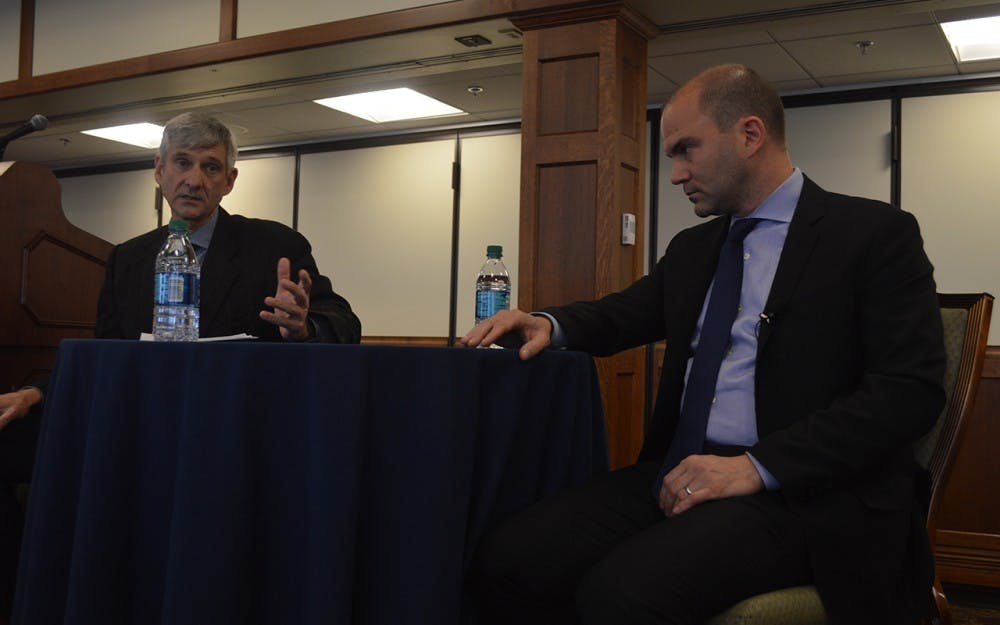Society depends on the free movement of people, senior adviser to former President Barack Obama Ben Rhodes said Monday during a conversation with Hutton Honors College dean Andrea Ciccarelli.
Rhodes addressed several questions relevant to Obama’s time in office and the United States’s place in the world under the new administration. Topics ranged from counterterrorism models to news media.
“We need to balance the need to be firm and present,” he said.
The extent of wreckage brought forth by the global financial crisis was relatively low in the U.S. compared to foreign countries, but it pushed a rhetoric of rejecting foreigners, refugees and trade deals with a desire to focus on the U.S. first, Rhodes said.
That rhetoric is shown in President Trump’s policies such as the Muslim ban and also in the Brexit decision.
“The problem is you can’t go back,” Rhodes said.
The U.S. as a country is still benefiting from alliances its citizens take for granted, he said.
This cannot be done without the consent of countries around the world, which can be a problem if the country’s public does not like the U.S. policies, Rhodes said.
In fact, it is not the outright declaration of war he is afraid of but the rhetoric leading to a chain of events escalating to an unintentional war, he said.
China’s competing territorial claims is an example of this, he said. The U.S. must show they are not using their influence without war.
He said as a country the U.S. cannot just assume they can control what happens through military force -- they have no idea what possible consequences they will leave.
Rhodes also brought up the struggle within the U.S. government concerning policies.
He gave Trump’s statement on a one- or two-state solution to the Israeli-Palestinian conflict as an example of polarization within the government.
“If we don’t know what the policy is, how will the world know?” he said.
The polarized media of today also adds difficulty to producing accurate news, especially because not everyone will be listening with an open mind, he said.
“The media environment is broken,” Rhodes said.
Though mainstream news media still controls a main portion of the narrative for today’s news media, many times the points brought up are then filtered to be polarizing, he said.
However, online media outlets like Vice and Vox have found ways to counter the traditional news cycle.
Younger people are taking all of the content, making it smarter and pushing it back, he said.
Social media platforms also must put more effort into quality control of the content by finding where to push back and drawing a line between free speech and setting up a terrorist attack, Rhodes said.
Cooperation with social media platforms in this way is an important counterterrorism technique with fighting the Islamic State group due to their social media presence.
While there is a lot not to like in politics for some students, Rhodes said they should continue to be active.
“They’re not other people who know more than you who are doing these things,” he said. “The main thing is to not create a psychological barrier between yourself and the government.”






